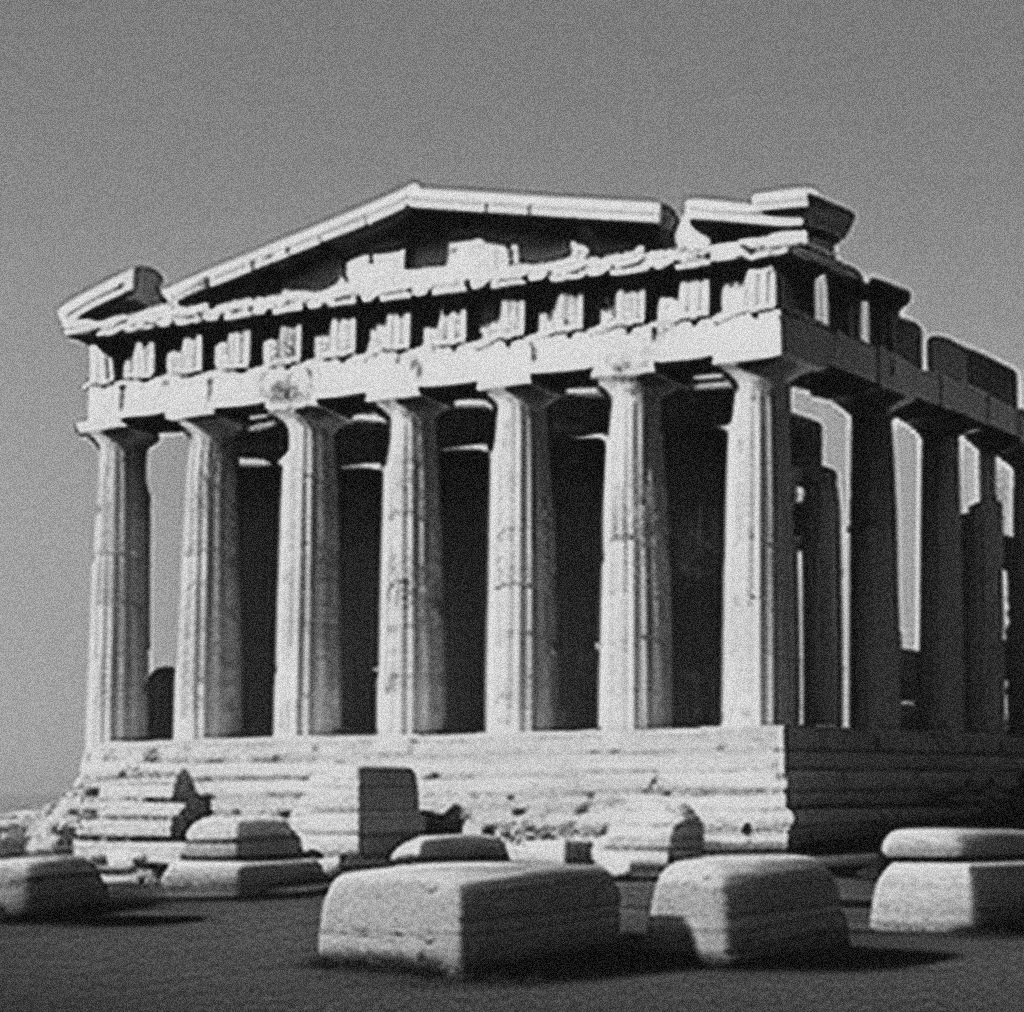Between existentialism and the thinking-philosophizing of Socrates, there is a relatedness; that is, there are similarities, continuities, and connections.
Socrates lived and died philosophically; he philosophized life and death, offering himself, his philosophizing, life, and death to existentialism as examples, questions, or perhaps even riddles.
Socrates and Self-Examination as Closeness to Oneself
In the space opened up by Socrates’s questioning-investigating, philosophy was first offered as a practice, and not as a theorizing-systemizing; a practice carried out through constant self-examination and determined self-command.
Socrates’s assertion that “the unexamined life was not worth living” carries within itself a demand for constant self-examination, a demand for examining and questioning oneself and one’s ways of existing in the world.
“Know thyself”, as a command, puts into words Socrates’s constant search for self-knowledge; it puts into words Socrates’s turning of philosophy into a way of life governed by a demand for authenticity.
For Kierkegaard, “know thyself” means knowing oneself by turning one’s investigating and scrutiny toward one’s own self; it means freeing oneself from any external distraction so that scrutinizing one’s own inner self could take place.
There is thus an inwardness accompanying and belonging to Socrates’s demand for constant self-examination, self-command, self-reflection, and self-scrutiny, according to Kierkegaard. To examine oneself is to truly come closer to oneself as oneself.
The genuineness of this closeness to oneself is what first renders authenticity possible. This is why Socrates’s demand for self-knowledge and self-examination is a sign anticipating and leading to the existentialist notion of authenticity.
Socrates’s Rejection of Systemizing and Theorizing
Socrates’s constant pursuit of wisdom occurs by rejecting all theorizing and every systematizing; a rejection that brings Socrates and existentialism together into the same site opened up by the same doubts, that is, by the same distrust of systems and theories.
It is in Socrates’s questioning-investigating, which grounds and expects existentialism, that the systematic is rejected, the certain is distrusted, the ambiguous is welcomed, non-knowledge is embraced, and the existing individual that finds itself in a world shared by others is rendered central.
Socrates did not write down anything, neither his investigating-questioning nor his answers or unanswered pursuits. Socrates rejected writing because he refused all systemizing and theorizing; he distrusted all attempts at closure. Socrates’s attempt was not to accumulate a body of knowledge, but rather to question and render destabilized.
Socrates distrusted knowledge and knowing, welcomed non-knowledge, acknowledged that he knew nothing, and hence became free, according to Kierkegaard in The Concept of Irony.
Socrates’s whole search was only for the wisdom that the Other— before even being called the Other— could also examine, question, disrupt, disagree with, destabilize, and problematize. Socrates distrusted all ideas that the Other did not question, examine, or perhaps even ridicule.
Philosophizing From Out of Existence and Toward Existence
There is in Socrates’s questioning-investigating a focus on existence, on existing in the world, the existential, and the existing human being. Kierkegaard says that “the great merit of the Socratic was precisely to emphasize that the knower is an existing person and that to exist is the essential”.
For Kierkegaard, modern thinking-philosophizing has failed to completely exhaust, fully investigate, or carefully navigate the space opened by Socrates’s questioning regarding human existence. In The Sickness unto Death, Kierkegaard says that what “the world needs as confused as it is by much knowing is a Socrates”.
Socrates’s questioning is turned toward the how-ness of living and the why-ness of existence; that is, the whence and whither of existing in the world. This questioning opens up a space that existential thinking-philosophizing still seems unable to fully exhaust.
Socrates practiced philosophy by debating with poets, teachers, politicians, and orators. Again, a sign indicating that philosophizing existence and questioning one’s own existence in the world take place only when the existent individuals themselves, and not the established philosophers, carry out the philosophizing, the questioning, and the investigating.
The Death of Socrates and Existentialism
Even Socrates’s death offers itself to existentialism as a moment that requires and renders possible thinking, philosophizing, and understanding, for it is complex and rich.
The moment of Socrates’s death renders apparent Socrates’s authenticity; it shows how Socrates remained true to himself and his thinking-philosophizing, questioning-investigating, values, decisions, choices, and wisdom even in the face of his own mortality, finitude, absence, and nothingness. This moment anticipates the existentialist notion of authenticity in the face of death.
Also, Kierkegaard takes Socrates’s welcoming of, and refusal to escape, death as the ground in which he grounds his interpretation of the paradoxical nature of faith, which is, for Kierkegaard, both infinitely uncertain and passionately committed.

